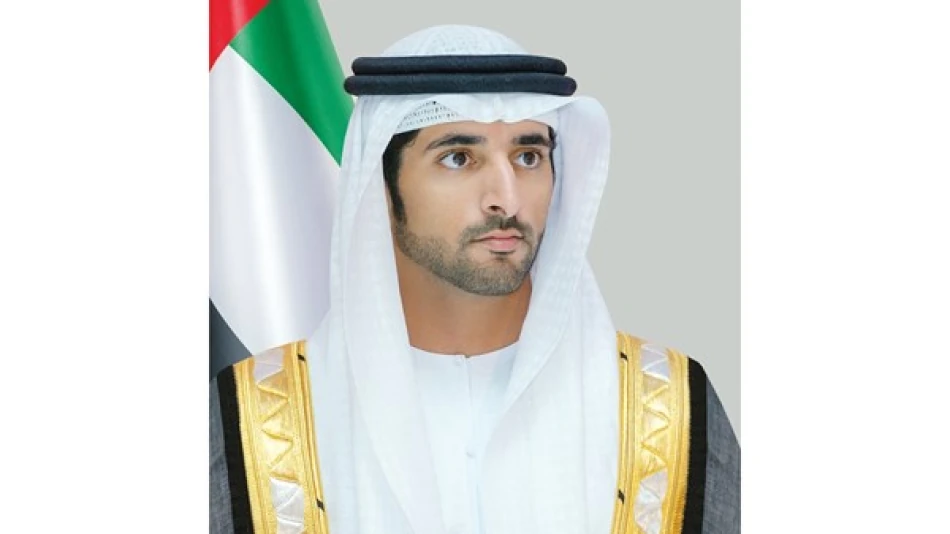
Dubai's Crown Prince Honors Visionary Leader with 'Rashid Villages' Initiative
Dubai Launches Global "Rashid Villages" Initiative to Build Model Communities for Vulnerable Families
Dubai's Crown Prince Sheikh Hamdan bin Mohammed bin Rashid Al Maktoum has announced an ambitious global humanitarian initiative that will construct integrated model villages providing housing, education, and healthcare to disadvantaged families worldwide. The "Rashid Villages" project, launched as a tribute to his late brother Sheikh Rashid bin Mohammed, will begin with its first community in Kenya and expand to build one village annually.
A Memorial Transformed Into Global Impact
Speaking on social media platform X, Sheikh Hamdan described the initiative as more than charitable work—it represents a systematic approach to addressing poverty through comprehensive community development. Each village will provide what he called "the foundations of dignified living and stability," including integrated housing, educational facilities, and healthcare services.
The Crown Prince emphasized that the project embodies "Dubai's message that goodness knows no boundaries, and that giving is a continuous approach." This philosophy aligns with the UAE's broader strategy of positioning itself as a global humanitarian hub, following successful models like the Mohammed bin Rashid Al Maktoum Global Initiatives.
Strategic Expansion Starting with Kenya
Why Kenya as the Launch Market
The selection of Kenya for the inaugural village reflects Dubai's established ties with East Africa and the country's receptive environment for international development projects. Kenya's stable governance structure and existing infrastructure make it an ideal testing ground for the scalable village model that Dubai plans to replicate globally.
The one-village-per-year expansion timeline suggests a methodical approach focused on sustainability and impact measurement rather than rapid scaling. This contrasts with some international aid initiatives that prioritize breadth over depth.
Positioning Dubai in Global Philanthropy
Competition with International Development Models
The Rashid Villages initiative positions Dubai alongside other Gulf states in the competitive landscape of international development. Saudi Arabia's Vision 2030 includes similar humanitarian outreach components, while Qatar's development programs have focused heavily on education infrastructure in developing nations.
Unlike traditional aid models that often provide temporary relief, Dubai's approach creates permanent infrastructure designed to generate long-term economic stability for beneficiary communities. This model mirrors successful corporate social responsibility programs but operates at a state level.
Economic and Diplomatic Implications
Beyond humanitarian impact, the initiative serves Dubai's broader economic diplomacy strategy. By establishing physical presence in developing markets through these villages, Dubai creates goodwill that often translates into favorable trade relationships and investment opportunities.
The project also demonstrates how personal tragedy can be transformed into institutional legacy. Sheikh Rashid's memory becomes permanently embedded in global development infrastructure, creating lasting diplomatic soft power for the UAE.
Sustainable Development Model
The integrated approach—combining housing, education, and healthcare in single locations—addresses a critical gap in international development where fragmented aid often fails to create lasting change. By providing comprehensive support systems, the villages aim to break cycles of poverty rather than merely alleviating symptoms.
The annual expansion timeline allows for continuous learning and model refinement, potentially creating a replicable template that other nations or organizations could adopt. This systematic approach to scaling humanitarian impact represents a mature evolution in Gulf state philanthropy.
Most Viewed News

 Layla Al Mansoori
Layla Al Mansoori






